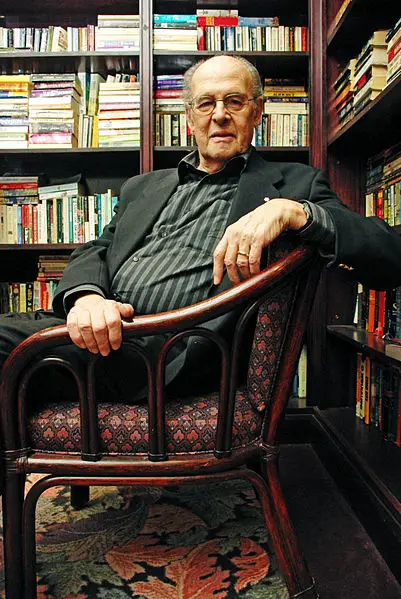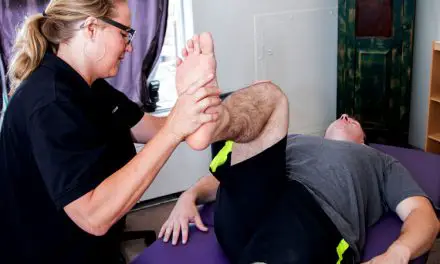Going beyond muscles, bones, and joints, Dr. Ronald Melzack paved a path to a more complex yet holistic way of understanding pain, leading to a gentler approach to treating patients.
Famed psychologist and pain researcher Ronald Melzack died on Sunday, December 22, 2019, in Montréal. His work had revolutionized how clinicians and patients understand pain and modern pain research, which had impacted every field of medicine in the last half of the twentieth century. His work revolutionized pain management and pain education, like what Albert Einstein did with physics, as a documentary mentioned. He was 90.
His death was announced on Twitter by the Alan Edwards Centre for Research on Pain at McGill University, the same institution where Dr. Melzack earned his PhD in 1954 with Dr. Donald O. Hebb as his research adviser. The cause of death was not disclosed.
Born in 1929 in a Jewish-dominant community in Montréal, Quebec, Dr. Melzack was born to a working class family and had two older brothers, Jack and Louis. His parents could afford to sent him to a university while his brother worked at his family’s bookstore, which later became the chain “Classic Bookshops.”
After he graduated from McGill University, Dr. Melzack began to treat patients who experience phantom limb pain. His observations and interviews with patients led him to develop the McGill Pain Questionnaire, which is now used in hospitals and clinics worldwide.
It is with deep sadness that we inform the community of the passing of our
esteemed colleague, Dr. Ronald Melzack on Sunday, Dec 22nd. A
funeral service will be held at Paperman’s on Dec 26th, at 11am.@mcgillpainunit @McGillMed @DentistryMcGill @McGillPsych pic.twitter.com/nCUgafc9am— Alan Edwards Centre for Research on Pain (@aecrpain) December 23, 2019
In the early 1960s at MIT, Dr. Melzack met and worked Dr. Patrick Wall, who was a British physician (1925-2001). They questioned the existing idea about pain at the time, which was the greater the tissue or structure damage, the greater the pain experience. Pain was perceived mostly a biological phenomenon, and clinicians back then paid little to the patients’ mind and experience.
Melzack and Wall also observed patients who experience immense pain yet they have very little or no injuries or disease that contributes to the pain. This eventually led them to develop the gate control theory of pain.
“I proposed the gate control theory of pain,” Melzack said in a 2009 interview. “It was nerve impulses from an injured area of the body going into the spinal cord, and there was what we called a ‘gate.’ So if you were busy thinking about something else, the gate might be shut. You might not even feel the pain.
“And then the gate could be wide open. You are anxious and worried about something, and your pain is enhanced or along with pain comes with stress. So now what we have is a real field of psychology because psychology is now an integral part of the pain field.”
But his work did not stop there. From 1974 to 2000, where he was the Research Director for McGill University, Dr. Melzack continued to expand his gate control theory by incorporating other factors that drives the pain experience, including genetics, environment, cognition, and emotion. This became the neuromatrix theory of pain, which provides a more holistic explanation than any previous pain theories.
“Our brain develops in remarkable ways,” he said. “We are born with twice as many neurons as we need, and they began to slough away and almost ‘sculpt’ what is happening. And the genes are such that as they sculpt, what I consider to be, the neuromatrix for feeling the body.
“I think the future lies in how do you have many and integrate them into one feeling to which we give a name ‘pain’?”
We are saddened to learn of the passing of Dr. Ronald Melzack yesterday. Beyond his immense contributions to Pain Medicine as a researcher and clinician, he was a valued colleague, mentor, and friend to many of us. "He will be tremendously missed"-Yoram Shir pic.twitter.com/w5Ee0IV9Pc
— Alan Edwards Pain Management Unit (@mcgillpainunit) December 23, 2019
A founding member of the International Association for the Study of Pain (IASP), Dr. Melzack was inducted in the Canadian Medical Hall of Fame in 2009 and received the University of Louisville Grawemeyer Award in psychology in 2010.
His work also have influenced many well-known pain researchers, including Dr. Lorimer Moseley, Dr. John Quintner, and Dr. VS Ramachandran.
So, if your physician spends five extra minutes listening to your story about your back pain instead of immediately ordering a MRI scan, or if your physical therapist encourages you to strengthen your body with certain exercises instead of blaming your posture as your source of hip pain, then you should thank Dr. Ronald Melzack.
“Pain is very valuable stuff. I think it is such an essential part of our human life,” he said.
Dr. Melzack is survived by his wife Lucy and two children.
A private funeral service will be held at Paperman & Sons on December 26 at 11 a.m.
A native of San Diego for nearly 40 years, Nick Ng is an editor of Massage & Fitness Magazine, an online publication for manual therapists and the public who want to explore the science behind touch, pain, and exercise, and how to apply that in their hands-on practice or daily lives.
An alumni from San Diego State University with a B.A. in Graphic Communications, Nick also completed his massage therapy training at International Professional School of Bodywork in San Diego in 2014.
When he is not writing or reading, you would likely find him weightlifting at the gym, salsa dancing, or exploring new areas to walk and eat around Southern California.






